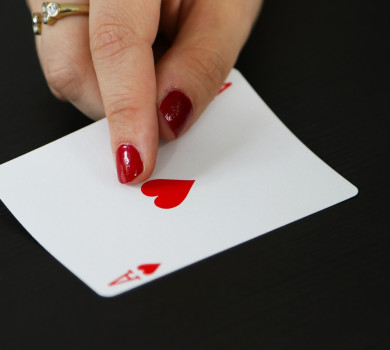La difficulté de consulter quand on est soignant.

Anne-Françoise Meulemans


Let’s breathe. Let’s take a deep breath.
The suitcases are closed, the permits are obtained, and the “goodbyes are said. We open the door. We close it. We go out, almost running towards this new life, this new adventure.
Stress, uncertainty, fear. Joy, nostalgia, excitement. Let’s go. We have dreamed so much of this moment that we no longer dare to live it. The expectations fluctuate, the nerves dance, the questions “rise up”.
Let’s go ahead. This is the right opportunity, the right action, the right decision.
And then, we get there. We arrive in a life that opens the door to our fears and joys, that drifts us away and brings us closer. We haven’t written that much to our family since the last holidays. We learn to cook an egg, do the laundry, ask for a “baguette” at the bakery. We grow up.
Maybe it wasn't the first time abroad. Maybe it wasn’t the first time as an independent adult. Maybe we’re already used to it. Or not.
In both cases, the fears and uncertainties exist to tell us something. But, why? Why do they arrive on their horse, called Anxiety, to harass us during our crusade at the other end of the "world"? Why are these questions we were asking ourselves as teenagers back, knocking at our door?
There you go! That’s the meaning of change. Our emotions exist for a reason, don’t you see? They are there to show us that we are alive. They mean that we are living, feeling, experimenting, discovering. We need them. But emotions also play chess with our more internal, identity questions. Yesterday, we never cried; today, we won’t stop crying. Yesterday, our smile rarely appeared ; today, it comes with a single ray of sunshine. Our emotions change us. Our emotions make us live. They make us adapt - and as we adapt, our identity changes.
We go home for the holidays. But where is our “home” today? Always hard to define. What do we face when we go to “our parents’ home" ? “You’ve changed!”, “You weren’t like that before.” And it makes an impact. Like a “quarterback” throwing themselves against us at every question: to remind us that no matter how many miles we run, they will be there to mark their point, to pinpoint the changes we are putting under the carpet every day.
Going home, to that new (or adopted) country, after the holidays is hard. We confront our reality with the speeches we received while being with the people who “know” us the most. Our identity questions are even stronger. They want to show us that they exist, that we have evolved, that the changes are real. But also, that these changes can be positive. And with those changes, comes annoyance/discomfort. We cry. We laugh. We are afraid again.
O, this fear of the unknown that never lets go ! O, this rage against the other and this nostalgia for the house (of our parents)!
One day, we love Belgium as if it were our lover. The morning after, we only see the defaults of the country and its inhabitants.
Still, Anxiety is coming back. But why, if we have been living here for six years? Why always the same story? Why always the same questions? Who are we? Where are we from? Where is our home? That’s the life of the Expat. That’s the life of the immigrant. That’s the life of the foreigner. Regardless of the name we “bear”, feelings end up being the same.
What if we took time to experience these changes? What if we listened to these struggles we’ve been through and tried to find resources in grief and fear? What if, like Spanish people do, we turned the omelette on the other side?
Change is an inherent part of our lives. We “are” those changes. We “are” those emotions that show us these changes. And we “are” the challenges and the solutions. We are the source of our resources. Whether in a group, in a community or during a psychology session, we discover our resources and learn to live there, because, after a while, it’s too tiring to simply survive.
We can find leads for our own happiness, our own satisfaction. Here or elsewhere. Here and elsewhere. It is not (only) through our entourage, but also our identities. We won’t be the same- and it's for the better! We are the result and the future of all the changes in our lives.
CentrEmergences allows patients to come and discuss the themes of change, arriving and leaving, with mental health professionals. From here and elsewhere, we are listening to these anxieties and we are working with you to find the resources. They are there. Let’s take the road together.
Cet article est aussi disponible en français.
This article is also available in French.
Le sujet vous intéresse ? Jetez un œil à ces autres articles récents.

Anne-Françoise Meulemans


Pierre Duray


Pierre Duray

Voir tous les articles